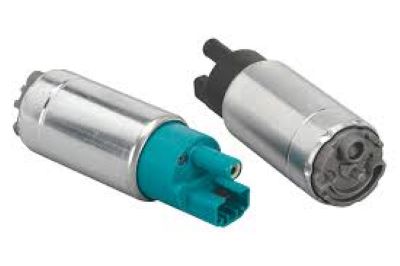One of the most significant components that have a direct effect on your vehicle's acceleration is the fuel pump, which passes a continuous stream of fuel to the engine. Contemporary fuel pumps operate at pressures of 40 to 70 PSI, pushing fuel toward the injectors at the correct speed for reasonable power output. If the fuel pump fails or cannot sustain adequate pressure, then the engine doesn't deliver enough fuel and won't accelerate as required by the driver. It also causes poor performance, and the vehicle may even be sluggish or sputter during acceleration.
The fuel pump needs to be able to deliver the fuel quickly, and this becomes even more important when your vehicle is powered by a high-performance engine. For turbocharged engines, they need more fuel under a load in order to maintain the power amplification effect. A fuel pump that doesn't make enough pressure in times of high demand, such as hard acceleration can cause a loss of 10% to 15 percent in power produced by the engine, meaning less acceleration. High flow rate fuel pumps are commonly fitted to high performance vehicles as they ensure that the engine is fed with a suitable amount of fuel for heavy driving conditions.
Tip 7 — As vital as fuel pumps are to the supply of fuel, Automotive industry experts say that it also equally affects the uniformity of fuel pressure. If the pressure varies, then the Engine Control Unit can not make air-fuel ratio adjustments accurately and during acceleration you will feel lack of power. In a 2018 study, fuel pump failure was associated with a sluggish time-to-60 for an increase of 25%, which proves just how important the system is to kickstarting your engine.

In forced induction systems, like turbocharged or supercharged engines, ensuring there is ample fuel delivery is even more crucial. During acceleration, these engines need additional fuel to keep it from detonating and dial in peak power production. ALSO READ: Fixing The Audi Ur-Quattro Hurts So Good If the fuel pump is unable to deliver the necessary level of fuel along with it not being able to provide enough pressure the engine will face 'lean' conditions which can cause intermittent or continuous hesitation... Fuel pumps built for performance are made to handle this greater demand, frequently having flow rates in excess of 255 liters an hour (LPH) as opposed to the regular 190 LPH seen in mostly all stock cars.
The great automotive designer, Carroll Shelby once famously quipped “horsepower sells cars, but torque wins races.” Good power cannot be had without good fueling, as both horsepower and torque are rather closely related on the importance of consistent fuel delivery under acceleration. If the fuel pump is unable to keep up with a fast engine, the engine will not be able to produce enough gearbox clearance and acceleration will be slow.
Symptoms of a Faulty Fuel Pump Affecting Acceleration Stuttering when pressing on the gasoline pedal. This is generally attributed to the pump not being able to feed at higher RPM. The faster the vehicle travels, the more fuel an engine needs — if the pump doesn't ensure at least somewhat steady flow, then acceleration suffers as a result.
If a driver is experiencing symptoms or performance related issues due to the fuel pump, installing a better performing or more suitable replacement can bring back your acceleration and power. Typically higher-capacity fuel pumps designed for greater volume and pressure are recommended for high performance cars or problems associated with old, tired stock pumps.
A variety of products ranging in power and price to suit multiple vehicle types are available at Fuel Pump for those looking to investigate high-quality options that can take acceleration to the next level.
